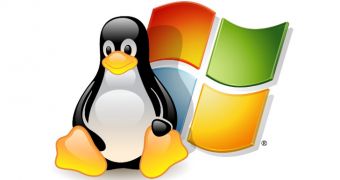You always hear about how Linux is much better than Windows in various aspects, especially now that Microsoft decided to finally halt the Windows XP support. You may be thinking to upgrade to a newer version of Windows, but the truth is that there are some things that Windows will never be able to do or to offer to its users.
People often compare Linux and Windows as two opposing platforms, although the philosophy employed by each of them is very different. Both operating systems have been designed to do different things and the profile of their users is somewhat different.
When Windows users talk about Linux, they usually mention that it's difficult to use, but that is no longer true. Linux distributions used to be difficult to install, difficult to maintain, and difficult to use. Things have changed and Windows and Linux-based operating systems now have a user base that is starting to overlap. Users should know that Windows will never be capable of providing some Linux-only features.
State-of-the-art kernel
Linux-based operating systems and Windows OSes use kernels in their core. The difference between the two is that the Linux kernel is constantly being updated and improved by thousands of developers working in the biggest open source enterprise in the world. Windows developers will never be able to match that man power, which means that the Linux kernel will always be head and shoulder above anything else.
Open source
Windows OSes will never be open source for a very simple reason. They are not free and use only proprietary code. It's difficult, if not impossible, to improve something that doesn't provide the source code. Microsoft needs to protect its business and this means that it needs to protect the code. The downside is that no one but themselves can actually make a difference in the operating system, no matter how good an idea from the community is. Zero day security
Bugs, exploits, vulnerabilities, and all sorts for problems are always present in operating systems, be they Linux-based or Windows. It's a fact. Both get patched, but the difference is that Linux systems are usually fixed on the spot. When a problem is discovered, developers kick into action, the bug is fixed, and a patch is issued. Most Linux operating systems will be patched in a matter of hours.
Windows systems, on the other hand, can take weeks until they receive a patch and most of the time users don't even know that there is a problem.
Now that Windows XP is no longer being supported with security patches by Microsoft, some users will start looking to upgrade. They should know what they are getting into if they don't choose the open source solution.

 14 DAY TRIAL //
14 DAY TRIAL //